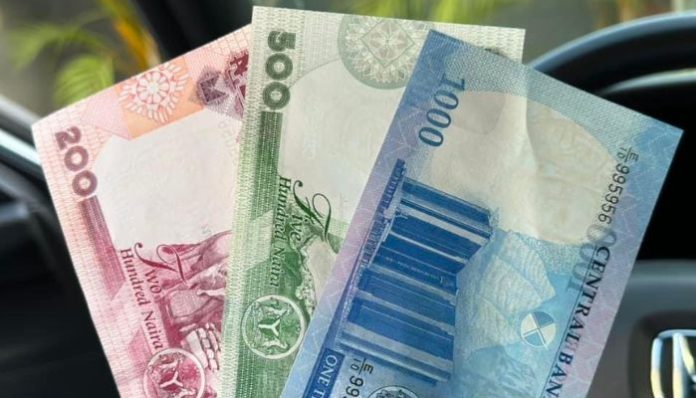A Federal High Court in Lagos yesterday dismissed a suit praying for the Arabic inscriptions on Naira notes be removed.
Justice Yellin Bogoro declared that the Lagos-based lawyer, Chief Malcolm Omirhobo, who filed the suit, failed to prove that the use of Arabic inscriptions on the Naira notes by the Central Bank of Nigeria (CBN) was in bad faith.
The lawyer had in 2020 filed the suit, contending that having Arabic inscriptions on the Naira notes portrayed Nigeria as an Islamic state, contrary to the country’s constitutional status of a secular state.
Omirhobo said he did not know what the Arabic inscriptions meant.
He prayed the court to order the CBN to replace the Arabic inscriptions with either English language, which is Nigeria’s official language, or any of the country’s three main indigenous languages – Hausa, Yoruba or Igbo.
He noted that with the Arabic inscriptions on the Naira notes, the CBN has been violating sections 10 and 55 of the Nigerian Constitution, which make the country a secular state.
He asked the court to restrain the CBN from “further approving, printing and issuing naira notes with Arabic inscriptions, bearing in mind that Nigeria is a secular state.”
The CBN, however, filed a counter-affidavit in opposition to the suit.
In the counter-affidavit deposed to by one Abiola Lawal, the CBN maintained that contrary to Omirhobo’s claim “the Ajami inscriptions on some of the country’s currencies do not connote any religious statements or Arabian alignment.”
The CBN also tackled the lawyer on the claim that the Arabic inscriptions were a threat to Nigeria’s secular status.
The apex bank said: “The inscriptions on the country’s currencies do not and at no time have they threatened the secular statehood of the nation nor have they violated the Constitution of Nigeria, as every design and inscription was finalised with the approval of the relevant government bodies.
“Ajami inscriptions” on the naira notes dated back to the colonial era “and they do not imply that Arabic is an official language in Nigeria.
“The naira notes retained the inscriptions with Ajami since 1973 when the name of the Nigerian currency was changed to naira from pounds.
READ ALSO: EFCC files fresh charges against Emefiele over printing of Naira notes
“The Ajami was inscribed on the country’s currency by the colonialists to aid those without Western education in certain parts of the country, who, back then, constituted a larger part of the populace.
“The Ajami is not a symbol or mark of Islam but an inscription to aid the populace uneducated in Western education in ease of trade.”
While encouraging the court to reject Omirhobo’s suit, the CBN pleaded that removing the Arabi inscriptions from the naira notes “would cost the tax-paying Nigerians and the Federal Government colossal sum of money to discard the existing naira notes and print new ones in satisfaction of the plaintiff.”
Justice Bogoro asserted that though Omirhobo had the locus standi to file the suit, he “failed to prove that the 1st defendant designs, issues, prints and distributes the naira notes with Arabic inscription in bad faith,” and accordingly dismissed the suit.
Omirhobo, however, said though the judge dismissed the suit, he advised the CBN to “remove the Arabic inscription on the N200, N500 and N1,000 notes since it has been removed from the N5, N10, N50 and N100 noted.”
“The judge reasoned that the Arabic inscriptions should be removed since “Nigeria is a secular state and that no religion is superior to the other.”
“The court noted that Nigeria is a multi-ethnic and religious country and that no ethnic group or religion is superior to the other. The court noted that the Arabic language is not Nigeria’s official Language and advised that for Nigerians to coexist in harmony, it is high time the Central Bank of Nigeria and the Federal Government removed the Arabic inscription on the N200, N500 and N1,000 naira notes since it has been removed from the N5, N10, N50 and N100 notes,” Omirhobo said.
However, the lawyer filed a similar suit against the Nigerian Army, seeking the removal of Arabic inscriptions from the logo of the Nigerian Army.
Like the CBN, the Army also opposed Omirhobo’s suit and urged the court to throw it out.
The post Court throws out suit challenging Arabic inscription on Naira notes appeared first on Latest Nigeria News | Top Stories from TVN.
Join Television Nigerian Whatsapp Now
Join Television Nigerian Facebook Now
Join Television Nigerian Twitter Now
Join Television Nigerian YouTUbe Now





